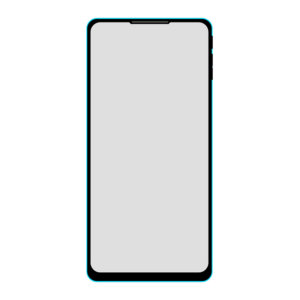In Huntington, West Virginia, cold calling and automated robocalls have become a pressing issue, intruding on residents' peace and privacy. Local consumer protection laws exist to combat this, but they present complex ethical challenges for robocall lawyers, attorneys, and law firms. These professionals must guide businesses through regulations related to transparency, consent, and data protection while ensuring compliance with West Virginia's strict legal environment. Engaging a reputable Robocall Lawyer or Attorney from a West Virginia firm is crucial for businesses aiming to maintain ethical cold calling practices and avoid legal disputes.
“In the ever-evolving digital landscape of Huntington, West Virginia, cold calling practices have become a contentious topic. This article delves into the ethical considerations surrounding robocall strategies, essential reading for both businesses and robocall lawyers in West Virginia. We explore the impact of automated calls on consumers, dissect the legal framework aimed at consumer protection, and uncover ethical dilemmas faced by attorneys. Furthermore, we provide best practices to navigate this complex space, offering guidance for robocall attorney West Virginia and robocall law firms West Virginia seeking ethical marketing advantages.”
Understanding Cold Calling and Its Impact in Huntington, West Virginia
Cold calling, particularly when automated through robocalls, has become a ubiquitous and often intrusive practice in many communities, including Huntington, West Virginia. These unsolicited phone calls, often from law firms or attorneys advertising their services, can have significant impacts on recipients. In Huntington, a city with a mix of residential and commercial areas, the influx of robocalls can be particularly bothersome for residents seeking peace and quiet in their homes. Moreover, small businesses may find these calls disruptive to their operations, especially when they are frequent and unwelcome.
The impact extends beyond mere annoyance. Many recipients feel violated by what they perceive as an invasion of privacy, leading to concerns about data protection and consent. In West Virginia, where consumer protection laws are in place, robocall attorneys and law firms must adhere to specific regulations regarding call frequency, content, and the obtaining of verbal consent. A Robocall lawyer or attorney from a reputable law firm in West Virginia can help navigate these complex ethical considerations, ensuring compliance with local laws while providing legal advice tailored to the unique challenges presented by cold calling practices in Huntington.
Legal Framework: Anti-Robocall Measures and Consumer Protection Laws
In Huntington, West Virginia, the legal framework surrounding cold calling practices is robust and designed to protect consumers from intrusive and unwanted communication. Anti-robocall measures and consumer protection laws play a crucial role in mitigating the prevalence of automated phone calls that often fall under the category of telemarketing. These regulations aim to strike a balance between businesses’ efforts to reach potential customers and individuals’ right to privacy, ensuring that cold calling remains ethical and respectful.
Robocall lawyers West Virginia, robocall attorneys West Virginia, and robocall law firms West Virginia specialize in navigating these legal complexities. They assist clients in understanding their rights and obligations, help draft agreements that comply with consumer protection laws, and represent businesses in legal disputes related to cold calling practices. Their expertise is invaluable for companies seeking to engage in effective telemarketing while adhering to the stringent regulations in place, ensuring a harmonious business environment in Huntington.
Ethical Dilemmas for Robocall Lawyers in WV
In West Virginia, the rise of automated phone calls, commonly known as robocalls, has presented unique ethical dilemmas for legal professionals specializing in this domain. Robocall lawyers in WV often find themselves navigating a complex web of regulatory requirements and consumer protection laws. The primary concern revolves around ensuring that these automated messages adhere to strict guidelines, especially when marketing or soliciting potential clients. West Virginia’s regulations demand transparency and consent, which means robocall attorneys must be vigilant about obtaining proper authorization before initiating such calls.
This is particularly challenging as consumers often find these automated messages intrusive. Robocall lawyers must strike a delicate balance between effectively promoting their services and respecting individual privacy rights. With the ever-evolving legal landscape surrounding robocalling, West Virginia’s robocall attorneys face the constant task of staying updated with new rules and adapting their practices accordingly, ensuring they remain ethical and compliant in their approach.
Best Practices to Ensure Ethical Robocall Marketing Strategies
In the realm of marketing, especially with the advent of automated technologies like robocalls, adhering to ethical standards is paramount. For businesses engaging in robocall marketing strategies in West Virginia, it’s crucial to implement best practices that respect consumer rights and privacy. One primary consideration is obtaining explicit consent from recipients before initiating calls. This ensures that individuals are not disturbed unnecessarily and their personal information is handled with care.
Additionally, providing an opt-out mechanism during the call allows recipients to choose to stop receiving such messages, showcasing a commitment to responsible marketing. Transparency is another key factor; clearly communicating the purpose of the call and who initiated it helps build trust. Engaging the services of a reputable robocall lawyer West Virginia or consulting with robocall attorneys West Virginia can guide businesses in navigating these ethical considerations, ensuring compliance with local laws and regulations pertaining to robocall practices.






